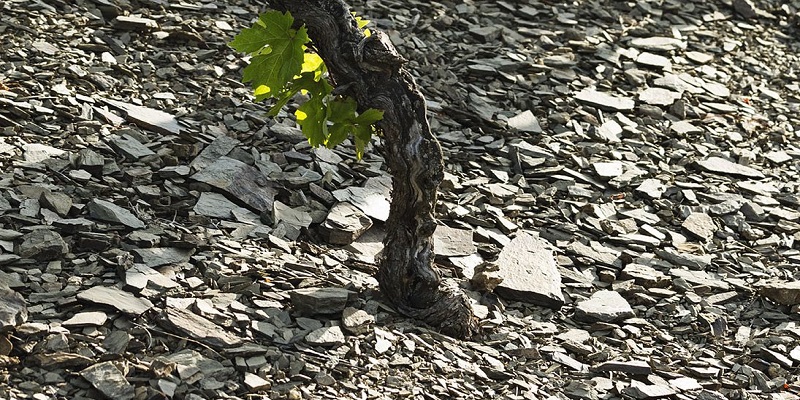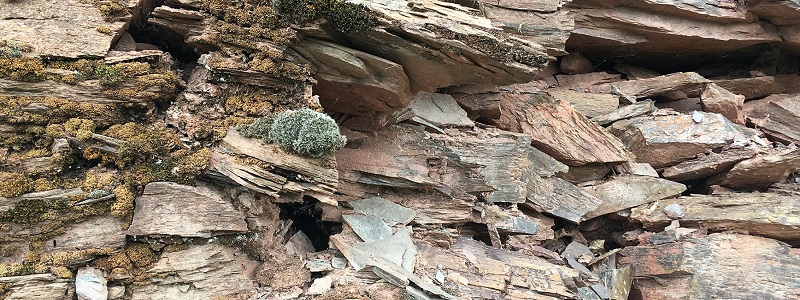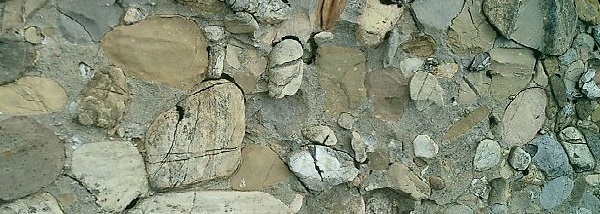Metamorphic Soils
Metamorphic rocks are caused by great heat, or pressure, or both.
Common types are:
- Shale
- Slate
- Schist
There are many areas in the world where shale, slate, and schist soils are exalted as the reason for superior vineyard sites.
Metamorphic rocks absorb heat: This helps vines in cooler climates. The blue slate in the Mosel Valley is famous for helping to ripen the fruit.
Garpes grown in slate have noticeable flinty notes while those grown in schist are know for creating big and bold wines.
Slate Soil

When you see the Licorella slates of Priorat in Spain, you wonder how anything can grow here.
Slate is a metamorphic, plate-like rock formed when shale, clay, or siltstone is subjected to pressure deep within the earth.
Slate soil retains heat well and warms up relatively quickly. It absorbs and reflects heat that helps to ripen grapes.
Grapes:
- Grenache Noir
- Grenache Blanc
- Carignan
- Chenin Blanc
- Syrah
- Merlot
- Cabernet Sauvignon
- Pedro Ximenez
Best known Regions:
- Mosel (Germany)
- Nahe (Germany)
- Wachau (Austria)
- Priorat (Spain)
- Douro Valley (Portugal)
Llicorella is the Catalan name for the soil in Priorat. It consists mainly of black slate with small particles of mica quartz, where layers of the soil are filled in by clayey soil.
Schist Soil

Schist soil at Clemens Busch in the Mosel
Schist is a hard, crystalline rock narder than slate. It has layers of minerals that can flake off easily.
Schist retains heat well and produces powerful wines with rich minerality.
Best known Regions:
- Douro Valley (Portugal)
- Priorat (Spain)
- Ribeira Sacra (Spain)
- Côte Rôtie (France)
- Mosel (Germany)
- Central Otago (New Zealand)
Greywacke

Wacke is the German word for sandstone. Grauwacke means Grey Sandstone.
Best known Regions:
- Ahr (Germany)
- Mosel (Germany)
- Mittelrhein (Germany)
- Algarve (Portugal)
- Western Cape (South Africa)
- Russian River Valley (California)
- Barossa Valley (Australia)
Molasse

Molasse is a blend of sandstones, shales and conglomerates that form as deposits in front of rising mountain chains.
Molasse soils are found on the Mosel and (Germany) and in Styria (Austria).